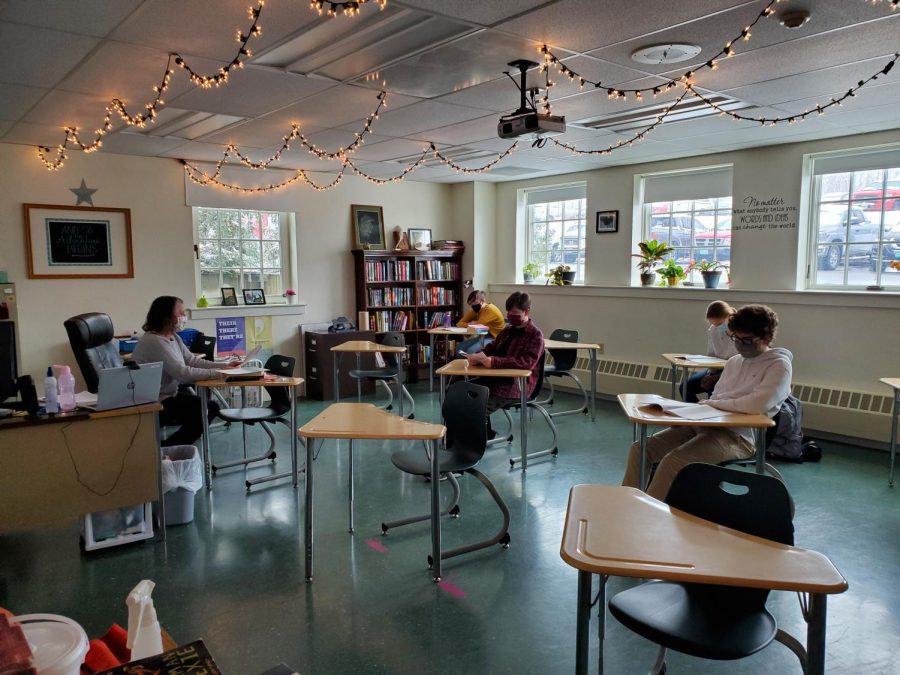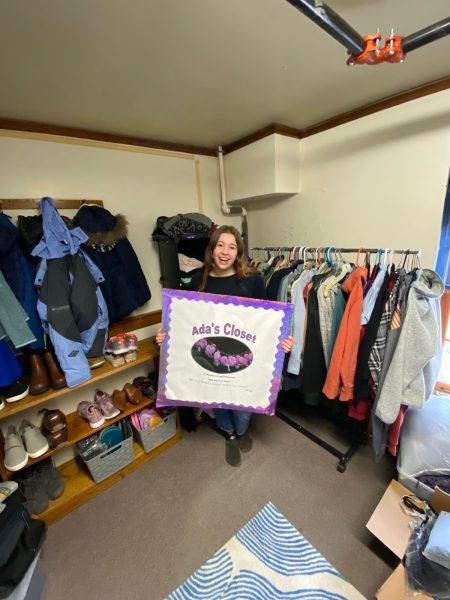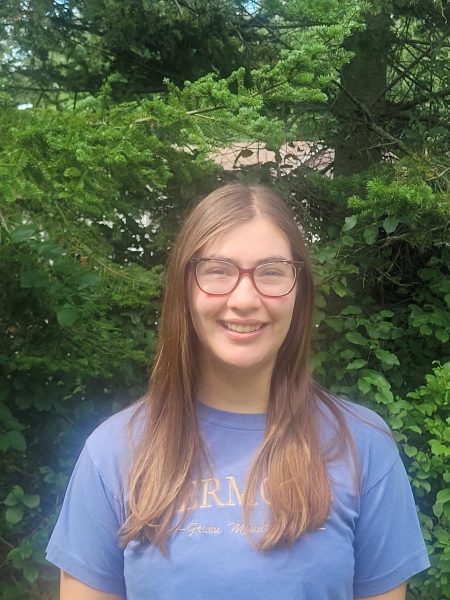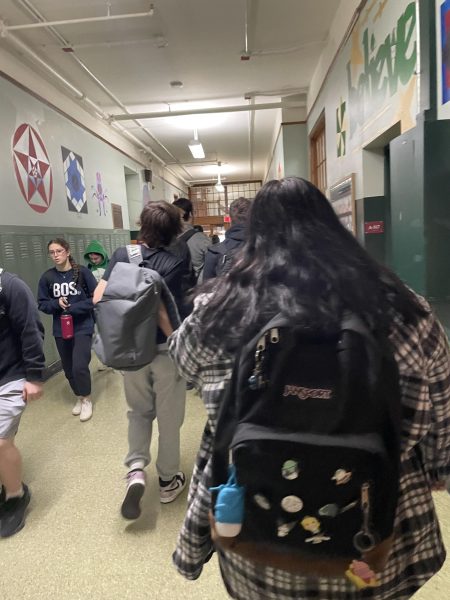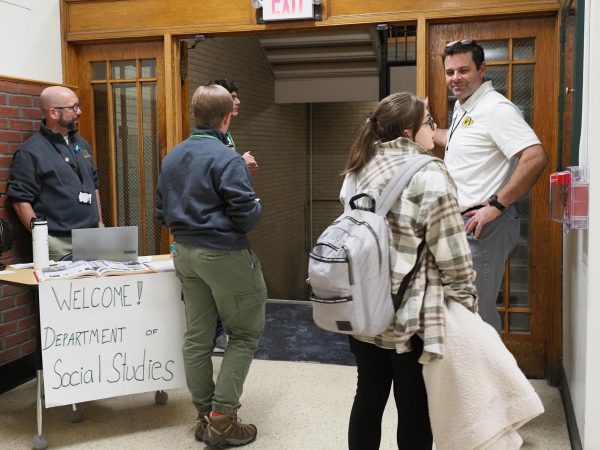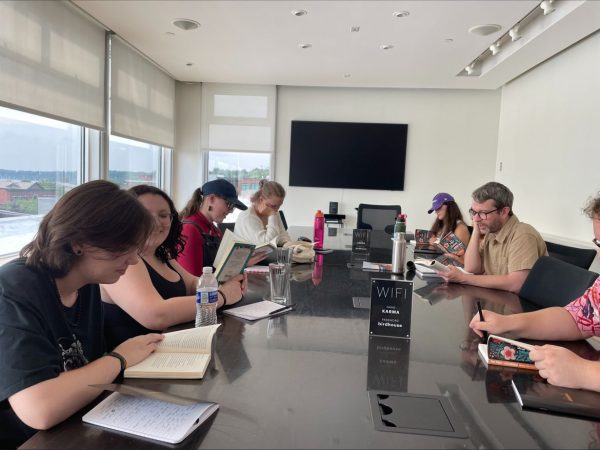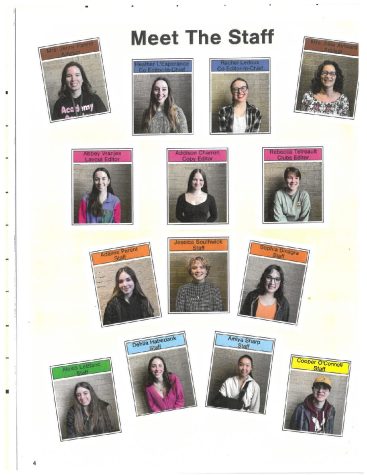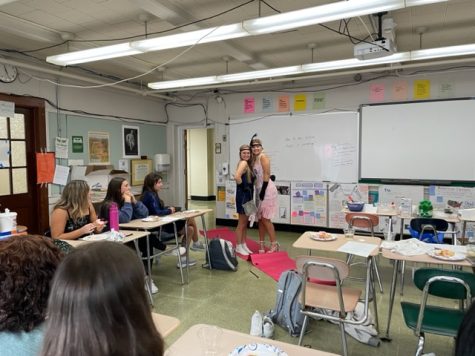How BFA English Teachers Have Evolved with the COVID-19 Pandemic
April 1, 2021
The 2020-2021 school year through the COVID-19 pandemic has been rife with monotony, fear, anxiety and adaptation to the surreal circumstances the world has managed to find itself in.
Coronavirus, if anything, has shown humanity’s capacity to evolve and adapt to adversity. This can be seen in the teaching staff at Bellows Free Academy, who witnessed a widespread change in a period of a few months.
Across the board, BFA’s teachers were required to adapt their year-long curriculums to a hybrid-learning environment where they would have half of their students attending class remotely while they would be instructing the rest of the class in person.
Schedule changes at BFA also dictated that the school year would be divided into quarters, rather than semesters, causing typically year-long classes to be compressed into a semester-long timeframe. Halving student’s classes, and their time in class, caused teachers to have to prioritize certain content they teach and neglect parts of their lessons that would be included in a normal year.
Nate Archambault, an English teacher at BFA, realized that even though circumstance necessitated the schedule change, it created an environment relatively different than traditional learning.
“The major adjustment is that we understand people don’t really learn that way, so the first question is, what do I need to keep [in my curriculum] to make sure that I am still assessing the course for what we say we’re assessing,” Archambault said.
MaryEllen Tourville, another English teacher at BFA, said she, “Took two courses on teaching in a hybrid situation,” to prepare for the new learning environment and put a heavy amount of consideration into an adapted curriculum.
Going into this situation, many teachers were left with a plethora of unknowns. For example, English teachers were concerned about how the guidelines would affect their classroom experience.
“I changed the books in my curriculum to books that are available online because I wasn’t sure if we’d be able to stay in person, or if we’d be allowed to hand out books. I adjusted my entire curriculum to be deliverable online, and I stopped relying on printed copies,” Tourville said.
Beyond the classroom, the pandemic itself is a concerning situation. Many teachers experienced, as Archambault said, “a lot of trepidation around what this was going to look like and how we were going to function safely.”
BFA, following strict guidelines set by the federal and state governments, has been able to mitigate outbreaks stemming from the school. Since the inception of the school year, practices such as enforced social distancing, temperature checks and sanitization of classrooms between class times have been in effect at BFA.
“I actually do feel safe. I think the protocols we’ve been following are effective,” Tourville said, though she admits, “creating new curriculum, and maintaining a sanitized environment, can be overwhelming at times.”
In late February 2021, things began to change as COVID-19 vaccines that went through development in late 2020 began to be accessible to essential personnel like healthcare providers and first responders.
As of March 5, teachers across Vermont have been granted access to the vaccine. According to healthvermont.gov, the state plans to have everyone willing to be fully vaccinated by July. Archambault was able to receive both doses of the Pfizer vaccine by March 28, and Tourville received a dose of the Johnson and Johnson vaccine on March 19, with most teachers hoping to be fully vaccinated in the near future.

